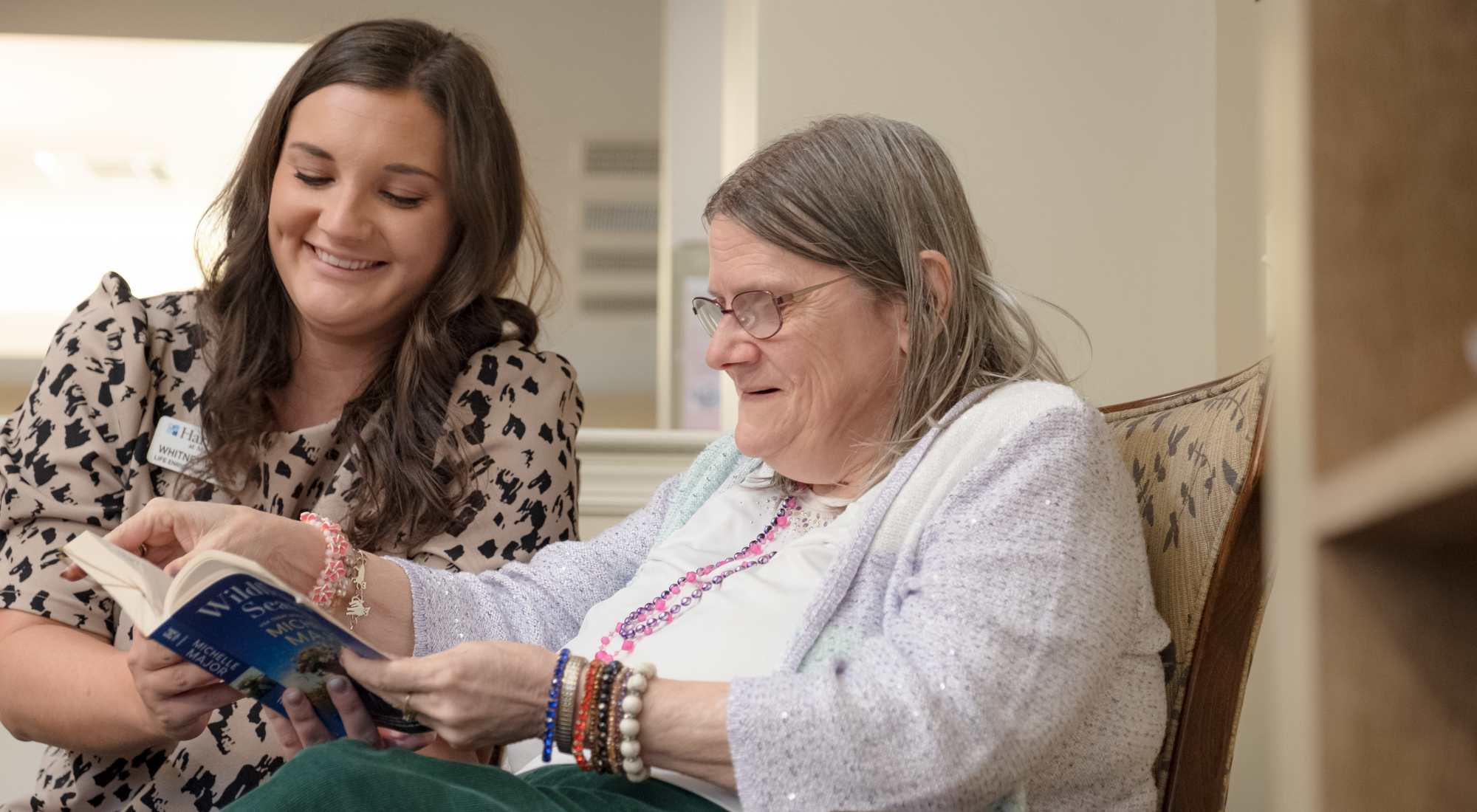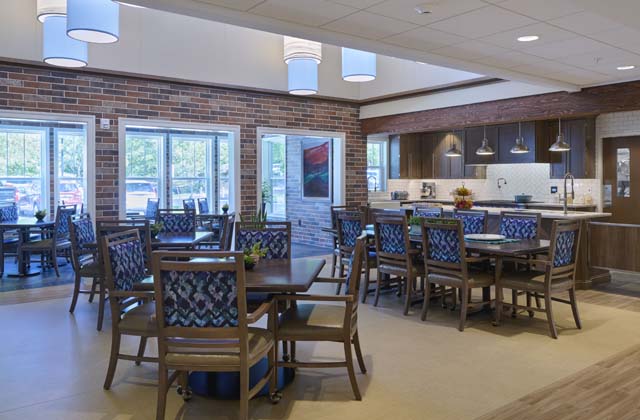Choosing Between Large Centers and Small Memory Carehomes Charlotte
Choosing Between Large Centers and Small Memory Carehomes Charlotte
Blog Article
Everything About Memory Treatment Services: Why Tiny Memory Treatment Houses Are a Terrific Option
Memory care solutions play an essential function in sustaining individuals with Alzheimer's and dementia. Small memory treatment homes stand out for their customized technique and intimate setup. With lower staff-to-resident proportions, these homes promote more powerful connections and tailored care. Locals benefit from enhanced social communications and a secure atmosphere. As family members explore options, recognizing the special benefits of tiny memory treatment homes comes to be crucial. What elements should be considered when choosing the ideal home?
Comprehending Memory Care Provider
While lots of may recognize with general elderly treatment alternatives, understanding memory care services is necessary for families encountering the challenges of cognitive decrease. Memory care specifically satisfies people with conditions such as Alzheimer's disease and other forms of mental deterioration. These solutions supply an organized environment that concentrates on improving the lifestyle for locals via specialized treatment and support.Memory treatment facilities are created to ensure safety and security and safety and security, often featuring safeguarded environments to avoid wandering. Trained employee are readily available around the clock to help with daily tasks, drug monitoring, and personal care. In addition, memory care programs often consist of cognitive stimulation tasks, customized to engage homeowners and advertise mental health. Family members can benefit from recognizing these solutions, as they allow educated choices concerning their liked ones' care, making sure that their particular needs and preferences are resolved in a compassionate and encouraging way.
The Benefits of Tiny Memory Treatment Residences
Tiny memory care homes provide distinct benefits that can significantly improve the lifestyle for locals with cognitive problems. One substantial advantage is the intimate environment, which allows for tailored interactions amongst staff and locals. This smaller setup cultivates significant connections, lowering feelings of seclusion and anxiety often experienced by individuals with memory issues.Additionally, the lower staff-to-resident ratio in tiny memory treatment homes makes it possible for caretakers to give even more mindful guidance and assistance. This technique not only enhances safety yet additionally promotes a feeling of safety and security for the residents.Moreover, small memory care homes can adjust promptly to the distinct demands and choices of each local, enabling a much more homelike ambience. Such an atmosphere can encourage social interaction and engagement in activities, eventually enhancing the day-to-day experiences of those living with cognitive problems.
Personalized Treatment Plans for Citizens
Customized care plans are essential in memory treatment homes, as they cater to the distinct requirements and preferences of each local. These strategies start with comprehensive evaluations carried out by experienced professionals, who assess cognitive capabilities, case history, and personal interests. This customized method guarantees that care is not only reliable however likewise respectful of each individual's dignity and autonomy.Moreover, personalized treatment plans are flexible, permitting adjustments as citizens' demands evolve in time. This adaptability promotes a sense of safety and knowledge, which is crucial for people living with memory difficulties. Caregivers are educated to implement these strategies constantly, providing support that aligns with the locals' regimens and preferences.Ultimately, personalized care strategies enhance the top quality of life for homeowners by promoting health, independence, and interaction, making them a fundamental element of memory care services in tiny memory care homes.
Producing a Home-Like Setting
Creating a home-like environment is crucial for cultivating comfort and experience in memory care setups, as it significantly impacts residents' psychological health. Little memory care homes frequently focus on personalized touches, such as warm shade schemes, family members pictures, and acquainted furniture arrangements, which help homeowners really feel a lot more secure. Incorporating aspects reminiscent of a typical home, like comfy home and common locations, motivates a feeling of belonging.Moreover, using natural light and exterior areas can improve the ambience, promoting leisure and peace. Staff participants play a significant duty in keeping this environment by involving with homeowners in a caring way, treating them like household. Routine tasks, such as cooking or horticulture, can additionally add to a home-like feeling, providing possibilities for residents to participate in purposeful experiences. On the whole, producing a supporting setting supports cognitive feature and psychological stability, making it an essential facet of memory treatment solutions.
Enhanced Social Communication and Neighborhood
Enhanced social communication and neighborhood are crucial elements of memory treatment services. By promoting customized social engagement and producing a family-like atmosphere, these solutions advertise meaningful connections amongst locals. Team activities and events further encourage engagement, helping people really feel much more included and supported.
Customized Social Involvement
While social communication is crucial for total well-being, several people with memory impairments frequently have a straight from the source hard time to engage meaningfully with others. Individualized social involvement in memory care homes addresses this obstacle by developing customized tasks that accommodate residents' distinct rate of interests and capacities. By focusing on individual preferences, caregivers can foster links that reverberate deeply with each person. Activities such as art treatment, music sessions, and assisted conversations advertise cognitive excitement and emotional expression. Furthermore, small team settings encourage friendship and enable even more intimate interactions, boosting sensations of belonging. This approach not only fights sensations of seclusion but likewise equips citizens to preserve a sense of identity, inevitably adding to enhanced mental wellness and high quality of life.
Family-like Atmosphere
In a memory care setup, promoting a family-like ambience greatly boosts social interaction and constructs a feeling of neighborhood amongst residents. Smaller sized memory care homes commonly prioritize intimate atmospheres, enabling locals to create closer connections with each other and staff members. This nurturing environment promotes trust fund, which is important for people with memory disabilities. Locals are more probable to talk and share experiences, creating a helpful network that eases feelings of solitude. The knowledge of shared rooms and regimens adds to a sense of belonging, further urging social interaction (personalized memory care). In such setups, psychological bonds prosper, resulting in boosted total health and a better of life for homeowners as they browse their daily experiences with each other
Group Activities and Occasions

Security and Safety And Security Features in Little Homes
Several little homes designed for memory care integrate essential safety and security and safety and security features to ensure the wellness of citizens. These homes typically make use of secure access and exit factors to prevent wandering, an usual worry among individuals with memory problems. Furthermore, monitoring systems and alarm systems boost tracking, making certain that personnel can promptly reply to any type of unusual activities.Interior layouts are customized for security, with reduced hazards such as sharp corners and clutter-free pathways. Handrails and non-slip flooring are usually installed to lower the risk of drops. Personnel participants are learnt emergency situation methods, ensuring they are gotten ready for numerous situations.Moreover, personalized care strategies might include evaluation of private security needs, supplying customized solutions for each resident. In general, these security and safety attributes create a nurturing environment where citizens can thrive while keeping their self-respect and freedom.
Just how to Select the Right Memory Treatment Home
Just how can families ensure they pick the most suitable memory care home for their loved ones? The decision calls for careful consideration of numerous aspects. Initially, family members ought to review the center's team qualifications and training, making sure that caretakers are experienced in handling memory-related problems. Next off, it's vital to analyze the home's environment, focusing on safety and security functions and whether it promotes a feeling of area and belonging. Visiting the center can supply insight into daily tasks and the social atmosphere, which are essential for mental stimulation and psychological health. In addition, family members need to ask about the treatment plans used, guaranteeing they are customized to specific needs. Ultimately, taking into consideration the home's location and ease of access for household sees can Visit Website add to a smoother shift. By addressing these elements, families can make an informed decision that prioritizes their enjoyed one's convenience and high quality of life in a memory treatment setup.
Frequently Asked Concerns
What Qualifications Should Staff Members in Memory Treatment Homes Have?
Team member in memory care homes ought to possess pertinent qualifications, experience in mental deterioration treatment, strong interaction skills, and empathy. Ongoing training in behavioral administration and therapeutic interventions enhances their capability to sustain residents effectively.
How Do Memory Care Provider Differ From Traditional Assisted Living?
Memory care solutions concentrate especially on people with memory impairments, supplying specific support and organized atmospheres. In comparison, typical assisted living supplies basic support with day-to-day activities, doing not have the tailored strategy required for those with cognitive challenges.
What Kinds of Activities Are Used in Memory Treatment Residences?
Memory treatment homes usually supply a variety of tasks designed to involve citizens. Typical options consist of art treatment, songs sessions, cognitive video games, physical workouts, horticulture, and social events, all intended at improving wellness and cognitive function.
Can Homeowners Bring Their Own Possessions to Memory Treatment Residences?
Citizens can usually bring their own belongings to memory treatment homes, enabling them to personalize their space - personalized memory care. This practice helps create see this a familiar setting, promoting convenience and a sense of identification for the people

Exactly How Are Household Members Associated With the Treatment Process?
Member of the family play an important function in the care procedure, commonly joining decision-making, participating in care conferences, and giving emotional assistance. Their participation cultivates a joint atmosphere, enhancing the citizen's general well-being and lifestyle. While numerous may be familiar with basic senior treatment options, recognizing memory care services is necessary for families facing the difficulties of cognitive decrease. These solutions give an organized environment that focuses on boosting the top quality of life for residents with specialized care and support.Memory care facilities are designed to assure security and security, often featuring secured environments to protect against straying. Customized care strategies are essential in memory treatment homes, as they cater to the distinct demands and preferences of each resident. Staff participants in memory treatment homes should have relevant accreditations, experience in mental deterioration care, solid communication skills, and compassion. Memory care services focus specifically on people with memory impairments, supplying specialized assistance and organized environments.
Report this page